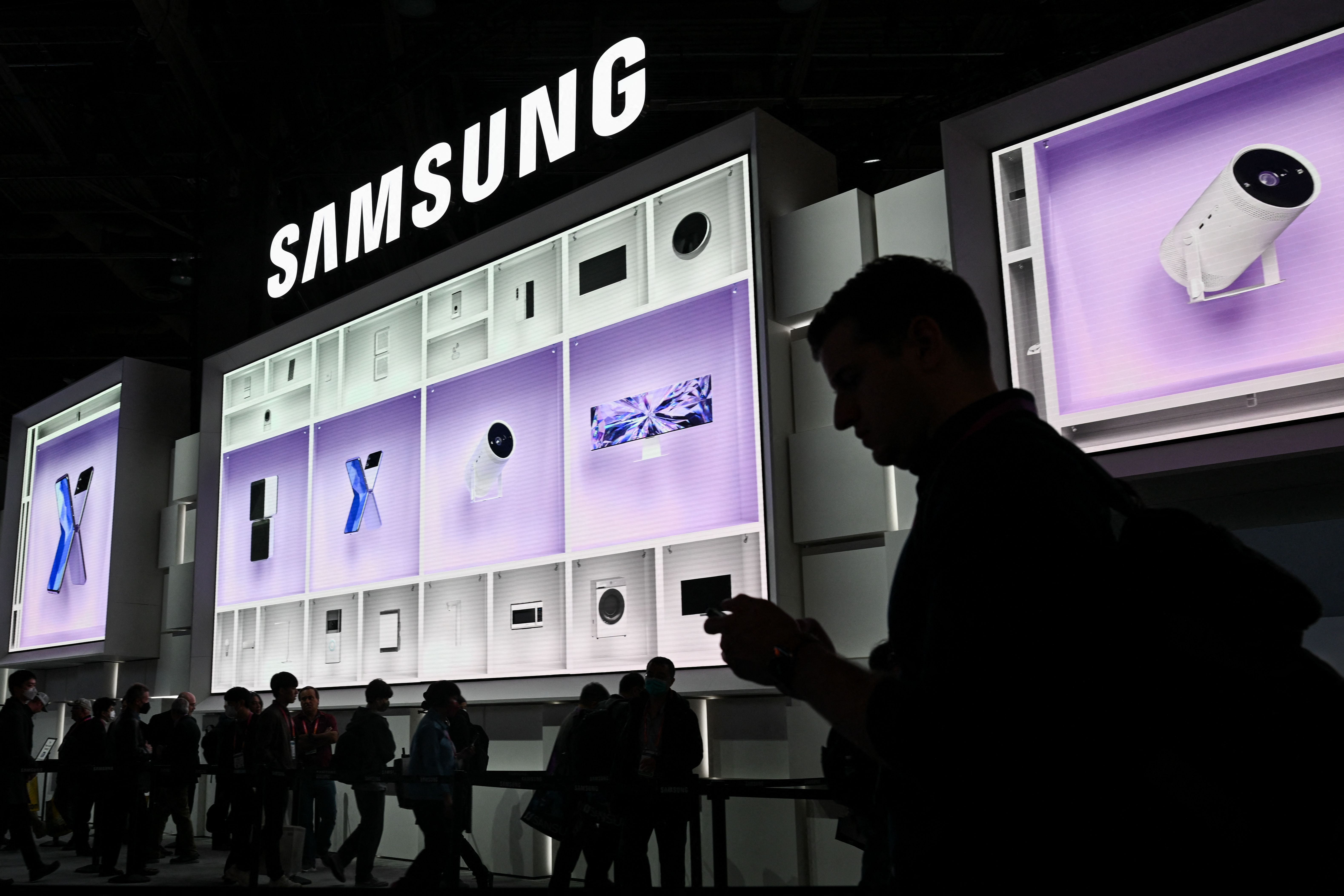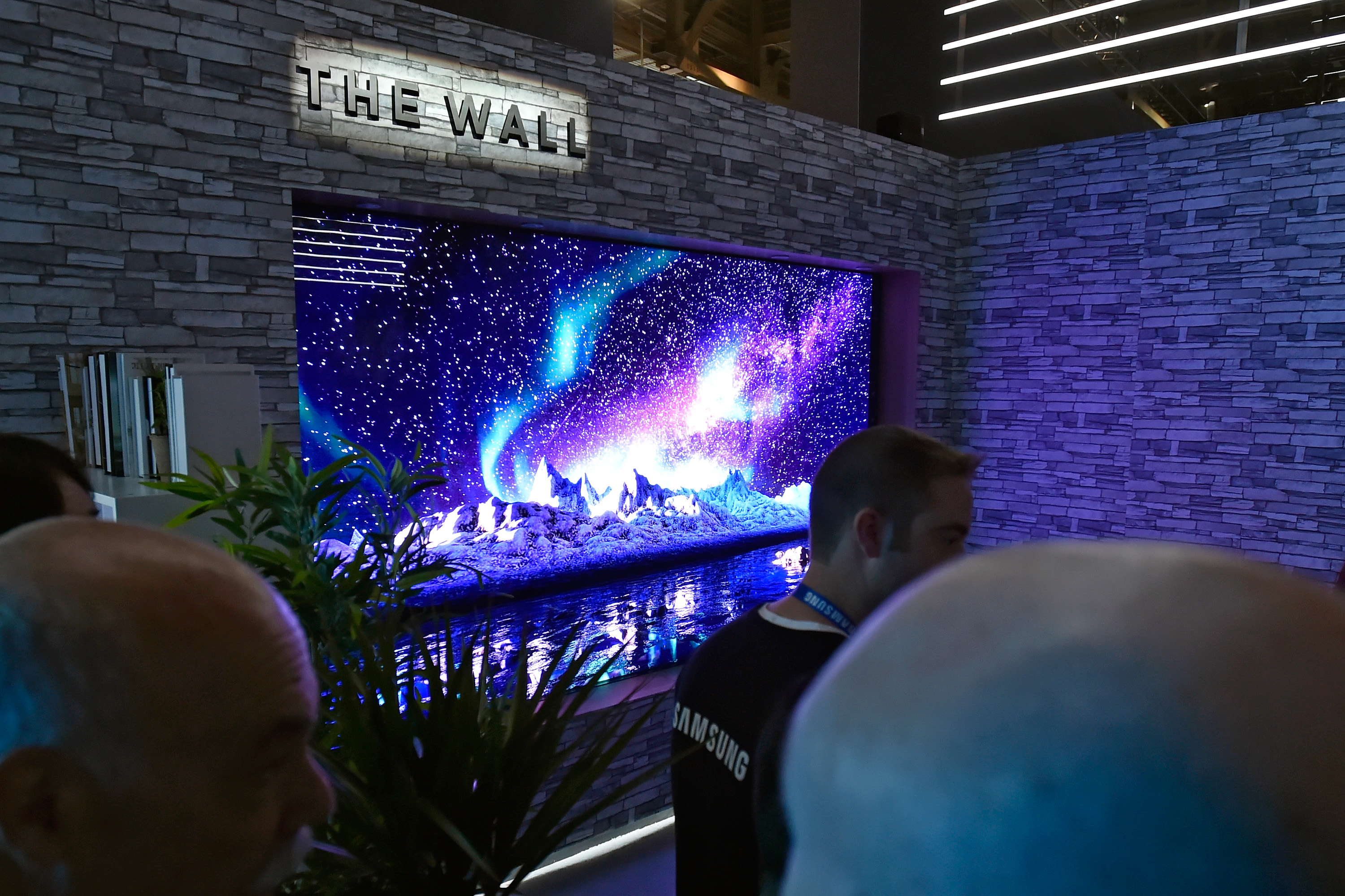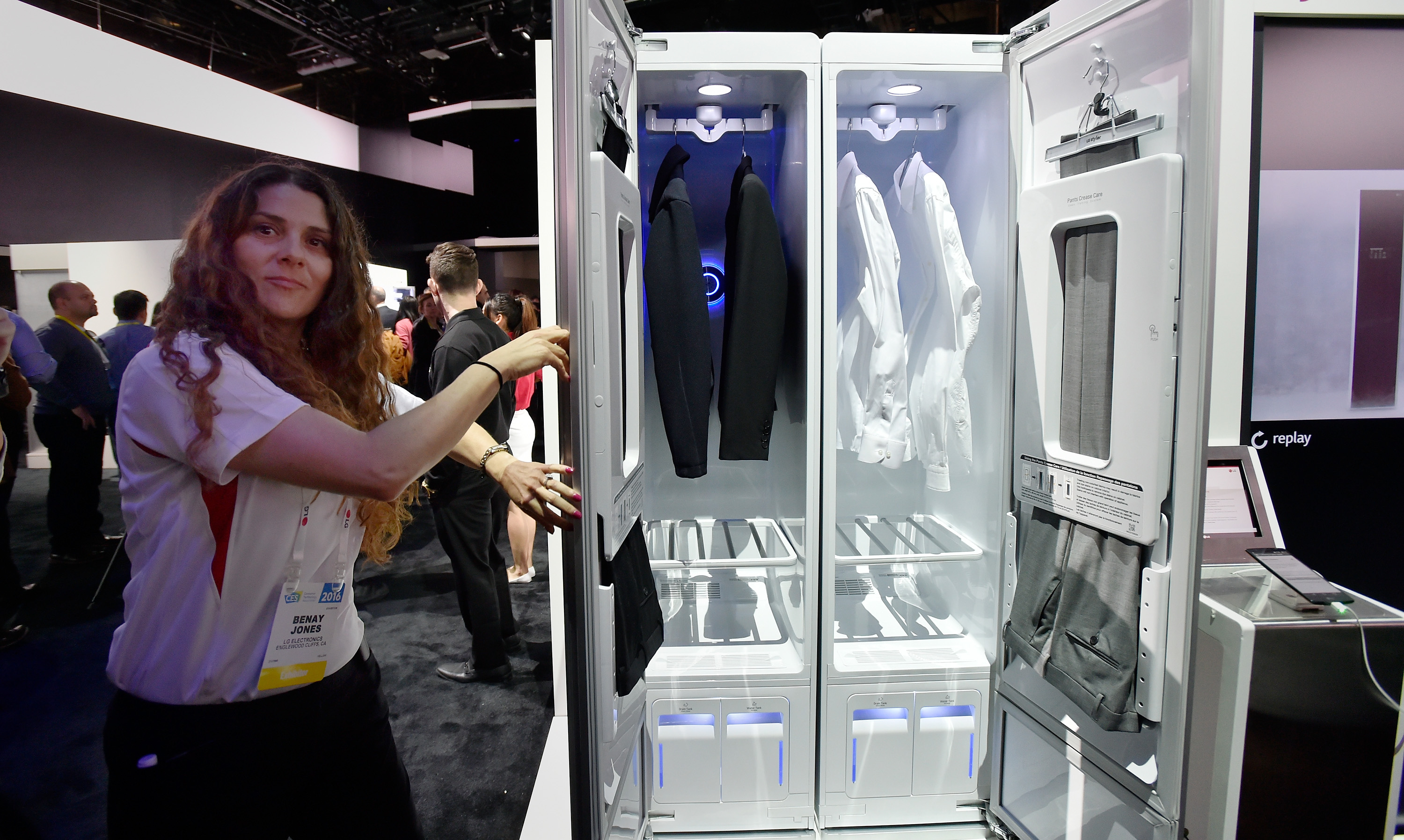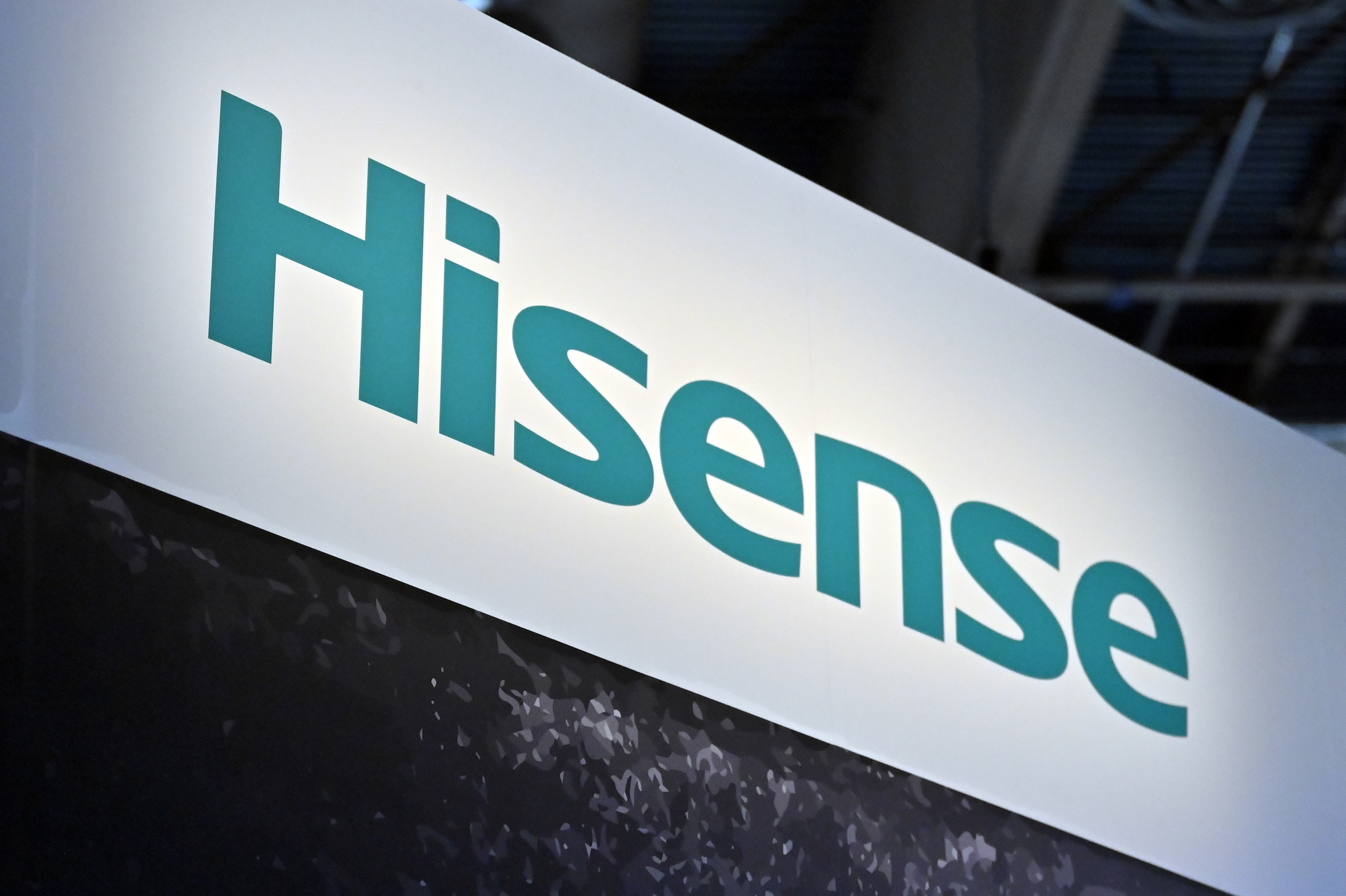Samsung Electronics exhibition hall at CES 2023 was different from previous years. The company did not display its top-of-the-line TV at the main venue of the Las Vegas Convention Center, reportedly to avoid being copied by Chinese companies.
According to South Korean experts, Samsung’s tolerance for Chinese plagiarism has reached its limit, and advanced tech companies worldwide are strengthening their vigilance against China.
This year’s Consumer Electronics Show (CES), the world’s largest annual trade show of tech, was held in Las Vegas from Jan. 6 to Jan. 8. According to the Consumer Technology Association (CTA), the venue’s host, more than 3,000 companies from 173 countries participated in the event.
Among them, 550 companies were from South Korea, second only to the United States, with more than 1,500 companies participating in the venue.
Samsung Electronics, per usual, had the largest exhibition hall among participants at the venue. However, this year was different. The company’s new top-end TVs and home appliances were not present at the event, substituted with the company’s SmartThings technologies.

Instead, Samsung unveiled the new products at a nearby hotel. The showcase was non-public, allowing only selected local consumers and media personnel into the showroom.
According to South Korean media Chosun Ilbo, the main product at the non-public showcase was Samsung’s new line of 4K Mirco LED TVs. This year, the company’s Micro LED TV lineup included seven sizes: 50, 63, 76, 89, 101, 114, and 140-inch. Previously there were only three sizes ranging from 50 to 76 inches.
Micro LED TVs are made with displays that consist of many micron-scale LEDs. Unlike traditional LCD or LED TVs, Micro LED TVs do not need backlights.
South Korean media widely described Samsung’s move to withdraw the top-end product from its main venue as “really rare.”
A Samsung official explained to South Korean paper, Chosun Ilbo, that “it is not uncommon for people from competing companies, especially Chinese, to come to the exhibition hall to measure the thickness of the latest TVs, and even measure the temperature of the screen, and then launch their counterfeit products.”
Lee Ji-yong, a professor at South Korea’s Keimyung University’s Department of International Studies, told The Epoch Times on Jan. 6 that Chinese companies have an extensive history of blatantly copying others’ products, and Samsung has suffered greatly as a result.
“Chinese companies have violated intellectual property rights to a severe degree… Samsung has woken up this time, and its tolerance toward [Chinese competitors] has reached its limit,” Lee said.
“This goes to show that companies with cutting-edge technologies are becoming more vigilant against China. Now that Samsung has done this, advanced tech companies around the world may imitate this approach in the future.”

Chinese Knockoffs of Korean Products At CES 2023
According to Korea Economic Daily, LG Electronics staff found a product identical to LG Styler, a smart steam closet system, at the CES booth of TCL Technology, a Chinese consumer electronics company.

Meanwhile, the washing machine and dryer next to TCL’s steam closet at the exhibition also appear reminiscent of Samsung’s BESPOKE washing machine and dryer set.
Likewise, a similar situation occurred at the booth of Hisense, a Chinese home appliance maker.

Hisense’s M1 Series TV that doubles as a picture frame appear to imitate the “Gallery Mode” TVs launched by Samsung and LG several years ago.
Data from Omida, a London-based market research firm, showed Samsung Electronics ranked first with a 20.2 percent share in global TV sales in the third quarter last year, and LG Electronics ranked second with a 12.0 percent share. In third and fourth place were TCL Technology and Hisense, with shares of 11.7 percent and 10.1 percent, respectively, Yonhap News Agency reported.
Another Yonhap report suggested that due to the deepening conflict between the United States and China and the impact of the COVID-19 pandemic, Chinese brands such as Xiaomi, Vivo, and OPPO did not participate in this year’s CES.
According to the Consumer Technology Association, the host of CES, there were only about 480 Chinese exhibitors at this year’s event, accounting for about 16 percent of the participants, a significant decrease compared to previous years.
It said before the global pandemic, Chinese companies accounted for more than one-third of the participants.










